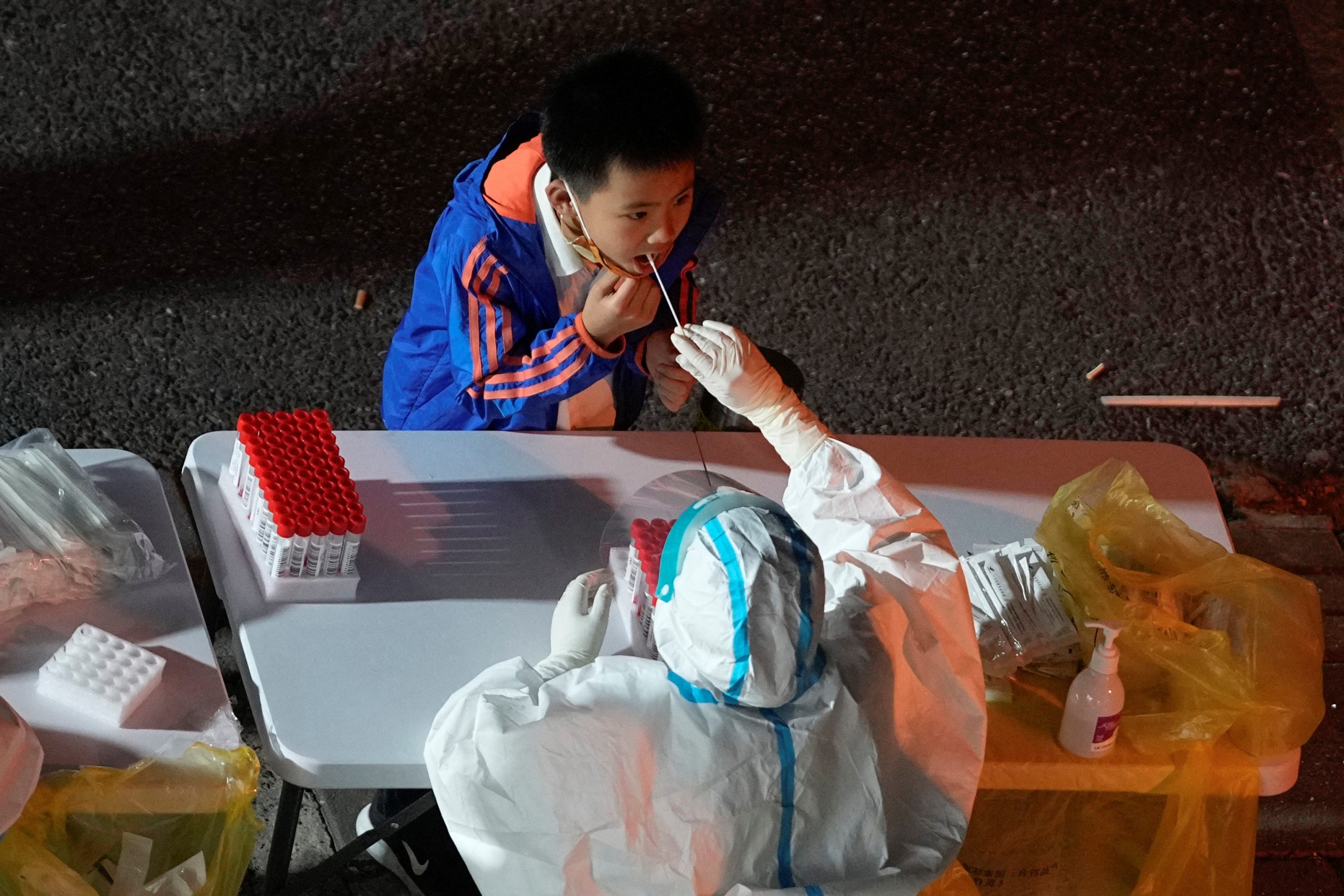
[elfsight_social_share_buttons id=”1″]
China‘s new top leadership body reaffirmed Beijing’s “dynamic-zero” COVID-19 policy on Thursday, as case numbers rose and authorities in the city of Guangzhou urged residents to work from home but stopped short of a city-wide lockdown.
In its first meeting since being formed last month after the ruling Communist Party’s twice-a-decade congress, the Politburo Standing Committee said China‘s epidemic prevention measures must not be relaxed, according to state media.
The meeting, chaired by President Xi Jinping, also stressed the need to minimize COVID‘s impact on the economy.
“We must take more resolute and decisive measures to curb the spread of the epidemic as soon as possible and restore normal production and normal life as soon as possible,” the leadership said at the meeting, according to news agency Xinhua.
New case numbers are at their highest since April, and rebounding infections and China‘s aggressive response to them are causing disruption for residents and businesses in cities across the country and weighing on financial markets, including for global commodities.
New bank lending fell sharply in October, central bank data released on Thursday showed, far below expectations in a Reuters poll, as COVID-19 outbreaks and a property sector downturn weighed on credit demand.
In Beijing, organizers of China‘s flagship auto show said the already-postponed event would not take place this year due to the COVID-19 situation in the capital, which reported 95 new infections for the previous day, up from 80 a day earlier.
While China‘s infection numbers are low by global standards — new domestic cases rose to 8,824 on Wednesday — the country continues to stick with its outlier zero-COVID approach, fuelling widespread public frustration and inflicting damage on the world’s second-largest economy.
Not locking down…yet
In the southern city of Guangzhou, a manufacturing powerhouse that is home to nearly 19 million people, cases hit more than 2,000 for a third straight day and officials have launched mass testing, resisting, for now, a city-wide lockdown of the type that paralyzed Shanghai for two months earlier this year.
“As things stand, it is hard to tell whether Guangzhou will repeat the experience of Shanghai in spring this year. If Guangzhou repeats what Shanghai did in spring, it will lead to a new round of pessimism on China,” Nomura analysts wrote in a Thursday note.
Mason Long, who works for a Guangzhou gaming company, said some residents were bracing for a lockdown, with many leaving the city or planning to.
Most of Guangzhou’s 11 districts are under some form of COVID restriction.
“Panyu district just announced that it’s restricting travel in and out, so that’s three districts to announce that,” Long said. “The rest of us in other districts are super-worried this will be applied to the entire city and we’ll be facing a Shanghai-style lockdown.”
Last week, Chinese share prices soared on hopes that China would begin easing COVID curbs, but Beijing continues to reiterate its commitment to what is a signature Xi policy that authorities argue saves lives.
China has yet to spell out an easing strategy or mount the sort of massive new vaccine campaign that experts say is needed before it can begin to open up, with many saying China is unlikely to begin easing until the spring, at the earliest.
Be more targeted
In Beijing, residents of some areas have been asked to get COVID tests every day this week.
Outside one residential compound in the Chaoyang district, a loud-hailer repeatedly squawked: “During this time of large-scale testing, no one is to be left out. Do your COVID test each day.”
A Thursday commentary in the official Xinhua news agency urged Chinese authorities to take a more targeted approach to tackling outbreaks and rectify any extra “layers” of measures.
“All localities will further improve the level of scientific and precise prevention and control, strive to achieve the greatest prevention and control effect at the least cost, and minimize the impact of the epidemic on economic and social development,” Xinhua reported.
On Thursday, Taiwan-based Foxconn said it expected smartphone revenue to fall this quarter and was adjusting production to prevent recent COVID-19 curbs at its massive Zhengzhou factory, which makes Apple iPhones, from impacting holiday orders.
Foxconn was rocked by recent discontent over stringent COVID measures at the Zhengzhou plant, with many of its roughly 200,000 workers there fleeing the site.
Copyright 2022 Thomson/Reuters
